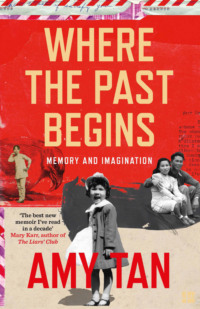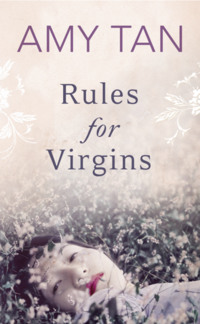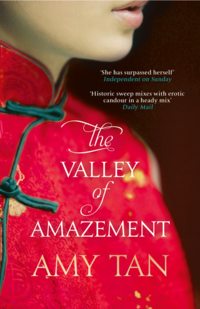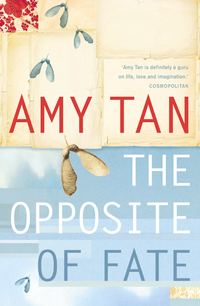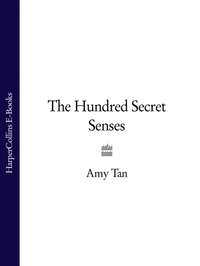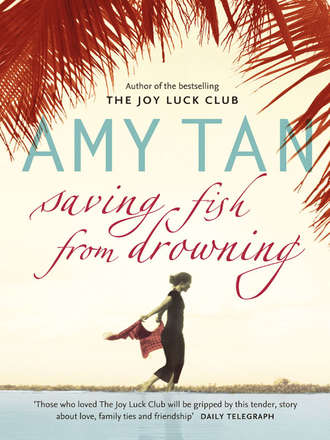
Полная версия
Saving Fish From Drowning
“To show they were upper-class,” one person said.
“To point their feet to heaven?” another ventured.
“To hide curved daggers,” a man guessed.
“I’m afraid the answer is less fascinating than that,” I would say before revealing the fascinating fact: “The curled toes lifted the hems of long skirts to prevent the wearers from tripping as they walked the long carpeted halls to pay obeisance to their shah. And thus you see, they are merely practical.” Every time I said this, people were highly impressed, and later, when they saw me again, they would say, “I remember you! You’re the one with the fascinating shoes.”
At the funeral, Zez, the curator at the Asian who oversaw restoration of ancestor commemorative paintings, said I had a style that was “absolutely memorable, as emblematic as the best portraiture of the Sackler collection.” That was a slight exaggeration, of course, but it was heartfelt. I certainly felt pings and pangs in my own late heart. There was even a moment when I could sense the ache of others. I was suffused with shared grief—at last, to feel so deeply—and I was glad, truly this time, that I did not have children, no dear daughters or sweet sons to feel the kind of pain that would have come from losing me as their mother. But all at once, this sadness-gladness evaporated, and I settled into more reflective thought.
To think, in all my life no one had loved me wholly and desperately. Oh, I once believed that Stefan Cheval cared for me in that way—yes, the Stefan Cheval, the famous one with the controversial footnote. This was eons ago, right before that pink-skinned congressman declared his paintings “obscene and un-American.” My opinion? To be perfectly honest, I thought Stefan’s series Freedom of Choice was overwrought and clichéd. You know the one: gouache overlays of U.S. flags draped over images of dead USDA-stamped livestock, euthanized dogs, and computer monitors—or were they television sets back then? In any case, heaps and heaps of excess to show immoral waste. The reds of the flag were bloody, the blues were garish, and the whites were the color of “discharged sperm,” by Stefan’s own description. He was certainly no Jasper Johns. Yet after Stefan’s work was condemned, it was vociferously defended by First Amendment rights groups, the ACLU, scads of art departments at top-notch universities, and all those civil libertarian types. Let me tell you, it was they who conferred upon the work grandiose messages that Stefan never intended. They saw the complexities of meaningful layers, how some values and lifestyles were judged more important than others, and how we, as Americans, needed the shock of ugliness to recognize our values and responsibilities. The rivulets of sperm were especially frequently cited as representing our greed for pleasure without regard to mess and proliferation. In later years, the mess referred to global warming and the proliferation to nuclear weapons. That’s how it happened, his fame. Prices rose. The mere mortal became an icon. A few years later, even churches and schools had posters and postcards of his most popular themes, and franchise galleries in metropolitan tourist centers did a brisk business in selling his limited-edition signed serigraphs, along with prints of Dali, Neiman, and Kinkade.
I should have been proud to have such a famous man in my life. Socially, we were an ideal duo. As to pleasures of the boudoir, I would discreetly admit that there were innumerable wild nights that met the standards of Dionysus. But I could not give up my work to be an addendum to his. And he was always gone to give a paid lecture, to attend the trustees’ annual dinner at the Met in New York, or to drop by ritzy benefits, several a night, for which he would jump out of a dark-windowed Town Car, lend his conversation-stopping presence for twenty minutes, then move along to the next party. When we were together, we enjoyed playful verbal banter. But we were not tender. We expressed no gushing sentiments one might later regret. And so, the seasons passed, the blooms faded, and nature took its course of inevitable decay. Without argument or discussion, we started to neglect each other. Somehow we remained friends, which meant we could still attend the same parties and greet each other with a pretend kiss on the cheeks. Thus, we circumvented becoming fast talk-talk. We were, at best, gossip on a slow day. Speaking of which, a friend told me Stefan now suffered from major and paralyzing depression, which I was sad to hear. What’s more, she said his signed giclée reproductions, the ones finished off with brush-strokes of clear acrylic swish-swashed here and there by his own hand, were selling on eBay starting at $24.99, no reserve, and that included the frame. As I said, it was quite sad.
I had other men as steady companions, and with each of them I experienced a certain degree of fondness but no heartsickness worth mentioning. Well, plenty of disappointment, of course, and one silly episode of cutting up a negligee bought for a night of passion, an impetuous disregard for money, since the gown was worth far more than the man. But I ask myself now: Was there ever a true great love? Anyone who became the object of my obsession and not simply my affections? I honestly don’t think so. In part, this was my fault. It was my nature, I suppose. I could not let myself become that unmindful. Isn’t that what love is—losing your mind? You don’t care what people think. You don’t see your beloved’s faults, the slight stinginess, the bit of carelessness, the occasional streak of meanness. You don’t mind that he is beneath you socially, educationally, financially, and morally—that’s the worst, I think, deficient morals.
I always minded. I was always cautious of what could go wrong, what was already “not ideal.” I paid attention to the divorce rates. I ask you this: What’s the chance of finding a lasting marriage? Twenty percent? Ten? Did I know any woman who escaped having her heart crushed like a recyclable can? Not a one. From what I have observed, when the anesthesia of love wears off, there is always the pain of consequences. You don’t have to be stupid to marry the wrong man.
Look at my dearest friend and the trustee of my estate, Vera Hendricks. She is one very smart lady, has a doctorate in sociology from Stanford, is the director of one of the largest nonprofit foundations for African-American causes, and she is often included in the Hundred Most Influential Black Women of America. In any case, as smart as Vera is, in her younger years she made the mistake of marrying a jazz drummer, Maxwell, whose job, it seemed to him, was to stay out and smoke and drink and tell jokes, then come home in the early hours of the morning. And he was not black, mind you, but Jewish. Black and Jewish, that was no small aberration among couples in those days. His mother reverted to Orthodoxy, declared him dead, and sat shiva for weeks. When they moved from Boston to Tuscaloosa, Vera and Maxwell had to fight the world to stay together. Vera confided that people’s hatred toward them was their raison d’être as a couple. Later, when they lived in the liberal environs of Berkeley, where mixed marriages were the norm, the fights were just between the two of them and were mostly about money and drinking, among the most common causes of marital discord. Vera was a reminder to me that even intelligent women make stupid mistakes in their choice of men.
As I approached forty, I almost persuaded myself to marry and have a child. The man loved me deeply and spoke in the romantic verbiage of destiny and diminutive nicknames that are too embarrassing to repeat. Naturally, I was flattered and also touched. He was not handsome in a conventional sense, but I found his genius to be powerful, and thus an odd aphrodisiac. He was socially inept and had a number of strange habits, but on the basis of DNA alone, he was an ideal partner for procreation. He spoke of our future child as part angel, part wunderkind. I was intrigued with the idea of a child, but inevitably it would arrive in a package called motherhood, which raised memories of my stepmother. After I refused the man’s numerous entreaties to marry, he was shattered to the depths of his being. I felt quite guilty until he married another woman, six months after. It was sudden, yes, but I was pleased for him, really, I was, and I continued to be pleased when they had a child, then another and another and another. Four! There was so much to be pleased about, wasn’t there? One was the most I would have had, and for years I still think about that child that never was. Would she have loved me?
Look at Vera’s two daughters, I often mused—they have always adored her, even in their teens. They were the progeny that people can only dream of. Might my child have had similar feelings for me? I would have seated her on my lap and brushed her hair, smelling the clean scent. I imagined myself tucking a peony behind her ear, or clipping in her hair a pretty barrette speckled with emeralds. And we would look in the mirror together and know we loved each other so much that tears would spring to our eyes. I realized much later that the child I imagined was my young self, who had longed for just such a mother.
I admit that whenever I heard that certain offspring of friends had turned into misfits and ingrates, I received the news with schadenfreude, and also was relieved to have missed the entire spectrum of parental frustration and despair. What could possibly be more socially devastating than having your own child declare that she hated you, and in front of your less-than-best friends?
This question came to me as I watched Lucinda Pari, the director of communications for the Asian Art Museum, rise and approach the lectern to provide her own contribution to my eulogy. She had once told me that I was like a mother to her. Now here she was at my memorial, praising my virtues: “The money from Bibi Chen’s estate”—she paused to toss her sleek curtain of hair like a racehorse—“money derived from the sale of her deluxe three-unit apartment building and gorgeous, bridge-view penthouse on Leavenworth, in addition to her store, the legendary Immortals, and its enormously successful online catalogue business, on top of a personal collection of Buddhist art—a very fine and well-regarded collection, I might add—has been willed in trust to the museum.” Loud clapping ensued. Lucinda’s talent has always been to mix drama and exaggeration with dull facts so that words balanced out as believable. Before the applause could turn thunderous, she held up her palm and continued: “She leaves us with an estate estimated to be—wait a minute, here it is—twenty million dollars.”
Nobody gasped. The crowd did not jump up and cheer. They clapped loudly, but I wouldn’t say wildly. It was as if my bequest had been expected, and an ordinary amount. When the room quieted all too soon, she held up a plaque. “We will be affixing this in commemeration of her generosity in one of the wings in the new Asian, to be opened in 2003.”
One wing! I knew I should have specified the degree of recognition I should receive for my twenty million. What’s more, the plaque was a modest square, brushed stainless steel, and my name was engraved in letters so small that even the people in the front row had to lean forward and squint. This was the style Lucinda liked, modern and plain, sans serif type as unreadable as directions on a medicine bottle. She and I used to argue in a friendly way about the brochures she had expensive graphic artists design. “Your eyes are still young,” I told her not too long ago. You must realize, people who give vast amounts of money, their eyes are old. If you want this style, you should give people reading glasses to go with it.” That’s when she laughed in a not-so-joking way and said, “You’re just like my mother. There’s always something not right.”
“I’m giving useful information,” I told her.
“Like my mother,” she said.
At my funeral, she said those words again at the very end, only this time she was smiling with tearful eyes: “Bibi was like a mother to me. She was terribly generous with her advice.”
MY OWN MOTHER did not give me advice, terrible or otherwise. She died when I was a baby. So it was my father’s first wife who raised my two brothers and me. She was named Bao Tian—“Sweet Bud,”—which was not quite suitable. We, her stepchildren, were obliged to call that old sour-mouth by the affectionate name of Sweet Ma. Whatever emotional deficits I had, they were due to her. My excesses, as I have already said, were from my mother.
According to Sweet Ma, she would have been my father’s only wife had she not insisted that my father take a concubine so he could seed some descendants. “It was my own idea,” Sweet Ma boasted. “I wasn’t forced to accept the arrangement, not at all.”
As the fates would have it, Sweet Ma was unable to bear children. Soon after she married she caught a spotted-skin disease—it might have been measles, or chickenpox, but was definitely nothing as serious as smallpox. The aftermath of this illness, she lamented, blocked off the path to the warm springs of her body, and thus, she did not have sufficient heat to incubate the seeds of babies. Instead, this useless warmth rose in her body and continued to break out as blisters on her face and hands, and perhaps the rest of her, which we couldn’t see, nor did we want to. Time and time again, she would wonder aloud over what she had done in a past life to deserve such a barren fate. “What small transgression for such bitter punishment?” she cried as the red dots rose. “No children of my own, just the leftovers of others” (meaning my brothers and me). Whenever she ate anything that disagreed with her, from unripe kumquats to veiled insults, her face was soon decorated with crusty splotches that resembled maps of foreign countries. “Do you know where India is?” we would ask her, and swallow our giggles. To soothe herself, she scratched and complained incessantly, and when she ran out of things to say, she would look at me and criticize my mother for endowing me with such ugly features. In time, she scratched her eyebrows bald, and when she did not draw them in with mean black slashes, she resembled a Buddhist nun with knots on her forehead, bulging with anger.
That is how I remember Sweet Ma, always running a sharp finger along her hairless eyebrows, chattering nonsense. My older brothers managed to escape her grasp. They were immune to her influence and treated her with blank-faced disdain. Thus, all her arrows fell on me as her solitary target.
“I tell you this,” Sweet Ma would say to me, “only so you won’t be stricken sick to hear it from someone else.” And she would tell me once again that my mother had been a tiny girl like me, but not as squat, barely seventy pounds at age sixteen when my father took her in as his breeding concubine.
“Itty-bitty though she was,” Sweet Ma said, “she was excessive in everything she did. She ate too many pears. She showed too much emotion. Why, when she laughed she could not control herself, and would fall to the floor in a fit of giggles until I slapped her back to her senses. What’s more, she slept all night long, yet yawned all day. She slept so much her bones turned soft. That was why she was always collapsing like a jellyfish out of water.”
During wartime, when the price of fatty pork had tripled, Sweet Ma could be heard to declare: “Though we have money enough, I’m content to eat meat sparingly, just for the taste and certainly not more than once a week. But your mother, when she was alive, her eyes were like those of a carrion bird, ready to pounce on any dead flesh.” Sweet Ma said a decent woman should never show eagerness for food or any other kind of pleasure. Most of all, she should “never be a burden,” this being what Sweet Ma strived not to be, and she desired in particular for my father to acknowledge this as often as she did.
In those days, we lived in a three-story Tudoresque manor on Rue Massenet in the French Concession of Shanghai. This was not in the best of the best neighborhoods, not like Rue Lafayette, where the Soongs and the Kungs lived, with their villas and vast, multiacred gardens, croquet lawns, and pony carts. Then again, we were not the kind of family to rub our bountiful luck into the faces of our inferiors. All in all, our house was still quite good, better than most people could say they live in, even in comparison with today’s multimillion-dollar San Francisco homes. My father’s family had a longtime cotton mill business and the department store Honesty, which he and my grandfather had started in 1923. It was maybe one degree less prestigious than the department store Sincerity, and while our store was not as large, our merchandise was just as good, and in the case of cotton goods, the quality was even better for the same price. All my father’s foreign customers said so.
He was a typical high-class Shanghainese: absolutely traditional in matters of family and home, and completely modern in business and the outside world. When he left our gates, he entered another realm and adapted himself to it like a chameleon. When necessary, he could speak in other languages, and the accent was absolutely particular to the tutor he had chosen for reasons of class distinction: the English was Oxford, the French was Right Bank, the German was Berlin. He also knew Latin and a formal kind of Manchu into which all the literary classics had been translated. He wore pomade in his sleeked-back hair, smoked filter-tip cigarettes, and conversed on subjects as wide-ranging as riddles, the physiology of different races, and the curiosities of other cuisines. He could argue persuasively on the mistreatment of China in the Treaty of Versailles and compare the political satire in Dante’s Inferno with Tsao’s earlier version of A Dream of Red Mansions. When he stepped back through the gates of our family home, he reverted to his private self. He read much, but seldom spoke, and truly, there was no need in a household whose women worshipped him and anticipated his needs before they ever occurred to him.
His foreign friends called him Philip. My brothers’ English names were Preston and Nobel, which were auspicious, sounding like the word “president” and the name of the prestigious prize that comes with a lot of money. Sweet Ma chose the name Bertha, because my father said it was close-sounding to “Bao Tian,” and my mother had been known as “Little Bit,” which was how she pronounced the Western name Elizabeth, which my father had given her. My father called me Bibi, which was both a Western name and short for Bifang, the name my mother bestowed on me. As you can imagine, we were a worldly family. My brothers and I had English- and French-speaking tutors, so we could receive a modern education. This also gave us secret languages to use in front of Sweet Ma, who knew only Shanghainese.
One time, Nobel reported that our Bedlington terrier, whom Sweet Ma detested, had left a small offering in her room—“Il à fait la merde sur le tapis”—and because the pattern in the rug masked the appearance of fresh fecal deposits, our stepmother could not figure out why every room in the house stank until it was too late. The boys had a fondness for adding surprise elements to Sweet Ma’s vials of medicines and snuff bottles. Caca d’oie, collected from the scummy shoals of our goose pen, was a favorite because it encompassed the trifecta of disgusting things: foul, slimy, and bilious green. To hear them tell me what they had done left me laughing helplessly on the floor. I so miss my brothers!
More often, however, my brothers were not at home to buffet Sweet Ma’s assaults upon me. Whenever I sat before the keys of the piano, Sweet Ma recounted my mother’s poor musicianship as a possible cause of mine. I defended my mother once, telling Sweet Ma that my father had recently told some guests that she “could make Chopin’s Fantaisie Impromptu sound like fast-running water in a spring brook.”
“Ssss!” Sweet Ma countered with irritation. “That was said to guests who are foreigners. They expect inflated talk. They have no shame, no propriety, no standards of excellence. Besides, any school-girl can play that easy song, even you, if you practiced a little harder.” And then she poked the side of my head for good effect.
Sweet Ma said that my father did not need to inflate her worth, because they had a complete understanding. “Superfluous words are not necessary when the marriage is balanced, in perfect harmony,” she told me. “And that is because our union was fated to be.”
At the time, it did not occur to me to question what she said, and my brothers had no opinions on love, or if they did, they would not share them with me. I was thus left to assume that a good marriage was one in which the husband respected the wife’s privacy. He did not intrude in her life, visit her rooms, or bother her with questions. There was no need to speak to each other, since they were of the same mind.
But one day my uncle and his family came for a visit several months long. My cousin Yuhang and I kept each other company morning to night. We were like sisters, although we saw each other only once a year. On that particular visit, she told me that she had overheard her parents and their friends gossiping—which, at the time, was the only way anyone learned the truth. The gossip had to do with the union between Sweet Ma and my father. It had been agreed to before their births. In 1909, two comrades from different life circumstances vowed that if the revolution to end the Ching dynasty succeeded and they were still alive to see it, their families should be united by marriage. Well, the Ching was overthrown in 1911, and the comrade with a son had a reputation so high it was said to have reached the heavens. That would be my father’s family. The other had a daughter, and his household clung to earth like the rotted roots of a tree about to tilt over with the next small gust. That would be Sweet Ma’s household. When the poor comrade with the daughter ran into the rich one with the son, he mentioned their earlier vow, incompatible in status though their lives were. It was widely known, the servants said, that my grandfather was a man of high morals for forcing his eldest son to marry a girl so plain, so lacking in any charms that would compensate for her embarrassingly meager dowry. No wonder the son took on a concubine as soon as he could.
Of course, Sweet Ma reported things differently: “Your mother,” she said, “was the daughter of a concubine to a family of only middle status. The concubine had given birth to ten healthy babies, all boys except one. That one girl, while weedy in looks at age sixteen, held promise for being as baby-prolific as her mother. I suggested her to your father, and he said I was wife enough. But I insisted that a stallion must have mares, and mares produce broods, so he mustn’t be a mule.”
According to Sweet Ma, the relationship my father had with my mother was “very polite, as one should be toward strangers.” In fact, my father was much too kind, and my mother learned to take advantage of this. The way Sweet Ma described it: “She was a schemer. She’d put on her rose-colored dress, twirl her favorite flower hairpin, and with eyes dishonestly lowered, she would raise that simpering smile of hers toward your father. Oh, I knew what she was up to. She was always begging money to pay off the gambling debts of her nine brothers. I learned too late that her entire family was a nest of snake spawn. Don’t you grow up to be like them, or I’ll let the rats in to chew you up at night.”
According to Sweet Ma, my mother proved true to her breeding and excelled at becoming pregnant every year. “She gave birth to your eldest brother,” Sweet Ma said, counting on her fingers. “Then there was your second brother. After that, three blue babies, drowned in the womb, which was a shame but not so tragic, since they were girls.”
I came along in 1937, and Sweet Ma was there to witness my dramatic arrival. “You should have seen your mother when she was nine months pregnant with you. She looked like a melon balanced on chopsticks, teetering this way and that.… Early in the morning, that’s when her water broke, after making us wait all night. The winter sky was the color of spent coal, and so was your mother’s face.… You were too big to come out between her legs, so the midwives had to slice her nearly in two and pull you out like a fatty tapeworm. You weighed over ten pounds, and you had bloody hair down to your shoulders.”


